
The Enchanting Village of Espelette
Discover the vibrant culture, scenic beauty, and culinary delights of Espelette, the heart of the Basque Country known for its famous pepper.
Nestled in the heart of the Basque Country, Espelette enchants visitors with its vibrant culture, stunning landscapes, and the famous Espelette pepper. This picturesque village is a must-visit destination for tourists seeking an authentic French experience.
A brief summary to Escallete, francia
- 6 Xerri Karrika, Espelette, 64250, FR
Local tips
- Visit during the harvest season in October to experience the vibrant pepper festival.
- Don't miss trying local dishes featuring the famous Espelette pepper at the village's restaurants.
- Take a guided walking tour to learn about the history and traditions of the Basque Country.
- Bring comfortable shoes for exploring the hilly terrain and scenic trails around the village.
- Check local market days for fresh produce and artisan goods to take home.
Getting There
-
Car
If you're traveling by car, get on the A63 motorway from your starting location in Pays Basque. Depending on where you are, take the exit towards Espelette (Exit 4). Once you exit, follow signs to D918 towards Espelette. After about 5 km, you'll reach the center of Espelette. Look for Xerri Karrika (Street) and park nearby. Please note that parking might incur a fee depending on the area.
-
Public Transportation - Bus
For public transportation, take a bus to Espelette from major towns like Bayonne or Biarritz. Look for the LER 3 bus line which connects these towns. The bus will drop you off at the main bus stop in Espelette. From the bus stop, walk towards Xerri Karrika, which is about a 10-minute walk. Ensure to check the bus schedule in advance, as services may vary.
-
Walking
If you are already in Espelette, Xerri Karrika is easily accessible on foot. From the town center, head towards the direction of the local market and follow the signs to the tourist attractions. Xerri Karrika is a short walk from there, located at number 6.
Discover more about Escallete, francia
Iconic landmarks you can’t miss
House-museum of Edmond Rostand
3.7 km
Explore the House-Museum of Edmond Rostand in Cambo-les-Bains, a literary haven celebrating the life and works of the iconic French playwright.
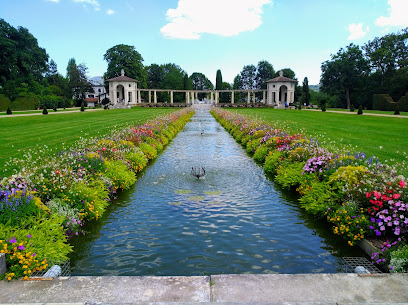
route64 pays basque
14.9 km
Discover the breathtaking landscapes and rich culture of the Basque Country with Route64 Pays Basque, your ultimate sightseeing tour agency.
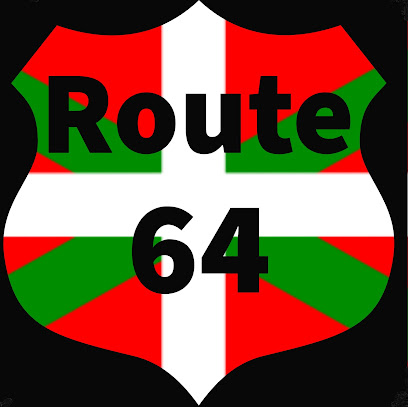
Château de Marracq
15.7 km
Explore the rich history and stunning architecture of Château de Marracq in Bayonne, a hidden gem for culture and history enthusiasts.
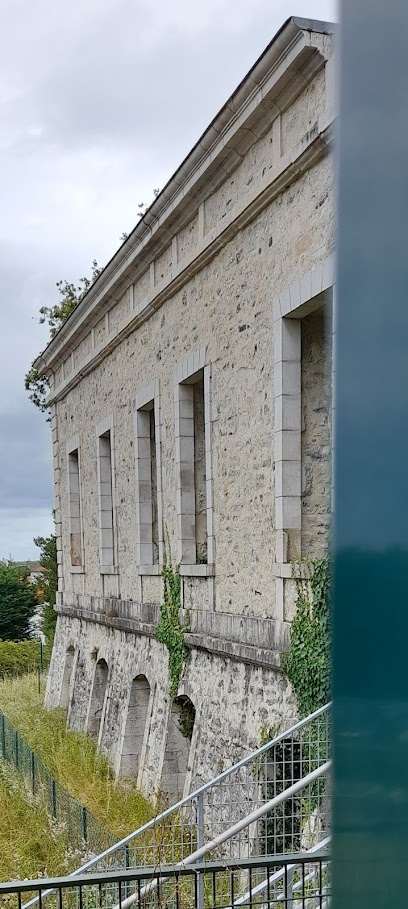
La Tour de Sault
16.5 km
Explore La Tour de Sault in Bayonne: a historic tower offering panoramic views and a glimpse into the city's medieval past.
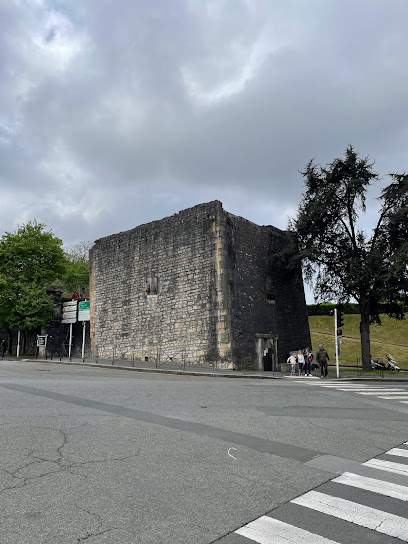
New Chateau
16.7 km
Explore Bayonne's Château-Neuf: A historic castle turned university, reflecting the city's rich past and vibrant present.
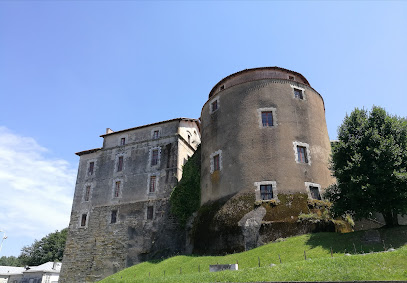
Église Saint-André
16.8 km
Explore the architectural beauty and serene atmosphere of Église Saint-André, a must-visit Catholic church in the heart of Bayonne, France.

Cloître de la Cathédrale de Bayonne
16.8 km
Discover the serene beauty and rich history of the Cloître de la Cathédrale de Bayonne, a must-visit cultural landmark in the heart of Bayonne.
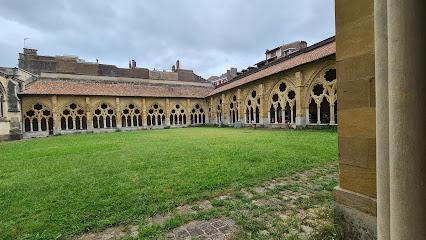
City Ocean
16.8 km
Uncover the marine mysteries at City Ocean in Biarritz, a family-friendly museum showcasing the beauty and importance of our oceans.

Perspective de la Côte des Basques
18.3 km
Discover the breathtaking Côte des Basques in Biarritz, where stunning views, surf culture, and vibrant local life blend to create an unforgettable experience.
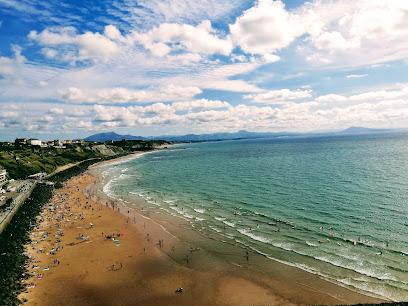
Église Orthodoxe de Biarritz - Protection de la Mère de Dieu et Saint Alexandre
18.3 km
Discover the beauty and tranquility of Église Orthodoxe de Biarritz, a historical landmark that offers a unique glimpse into the region's rich cultural heritage.
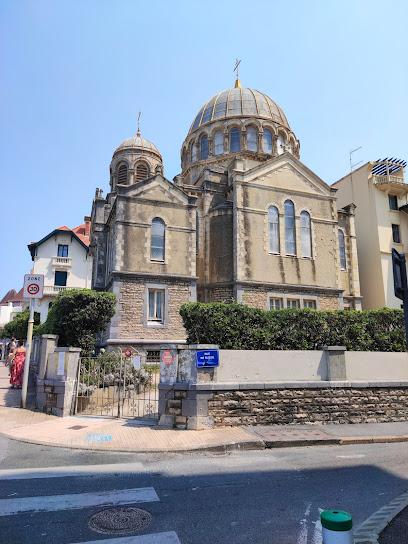
Rochers des deux Jumeaux
25.2 km
Explore the breathtaking Rochers des Deux Jumeaux, a historical landmark offering stunning views and rich cultural significance along the Basque coast.
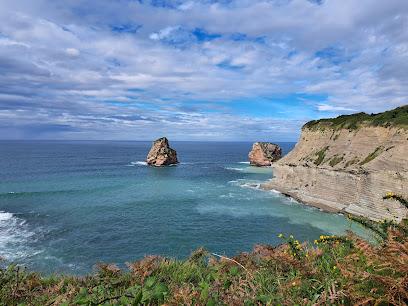
Memorial of the Treaty of the Pyrenees
25.6 km
Explore the Memorial of the Treaty of the Pyrenees: A Historic Landmark of Peace on Isla de los Faisanes in Gipuzkoa.
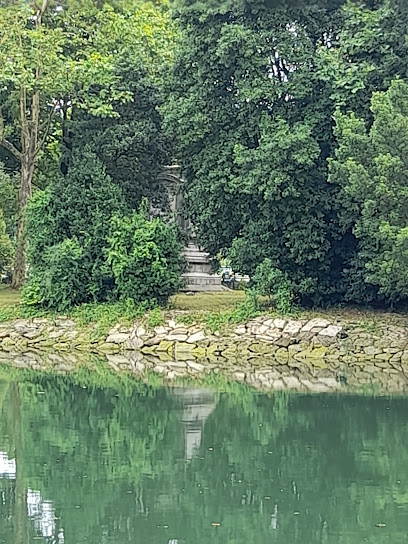
Citadel of Mendiguren
26.4 km
Discover the Citadel of Mendiguren in Saint-Jean-Pied-de-Port, a historical fortress offering stunning views and rich cultural heritage.
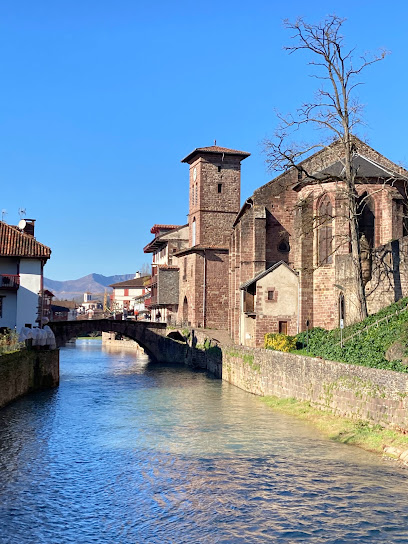
Alde Zaharra
27.8 km
Discover Alde Zaharra, a historical landmark in Hondarribia, where medieval charm meets vibrant local culture and exquisite Basque cuisine.
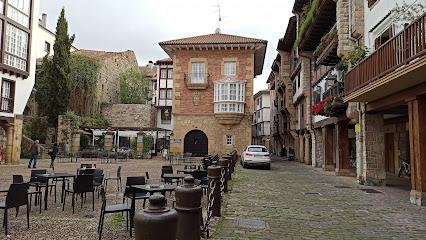
Calle San Pedro
28.0 km
Explore the historic Calle San Pedro in Portua, Gipuzkoa, and immerse yourself in the rich culture and vibrant atmosphere of the Basque Country.
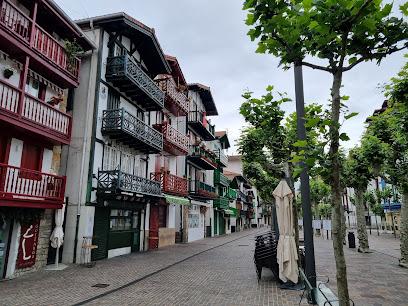
Unmissable attractions to see
Maison Pariès
0.0 km
Savor Basque Country's sweet traditions at Maison Pariès in Espelette, offering Gâteau Basque, Mouchous, and artisanal chocolates since 1895.
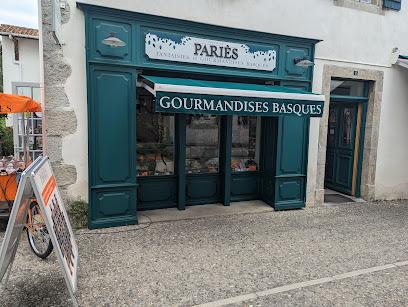
Boutique Pascal Massonde
0.1 km
Discover the flavors of the Basque region at Boutique Pascal Massonde, where local culinary treasures await in the heart of Espelette.
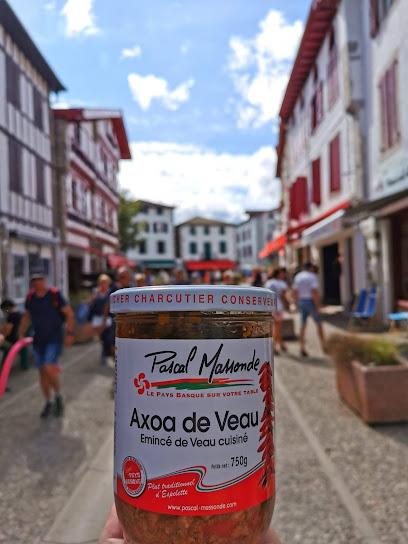
Boutique Bipertegia, producteur de piment d'Espelette AOP
0.1 km
Discover the authentic taste of Basque cuisine at Boutique Bipertegia, the premier spice store in Espelette, specializing in AOP Espelette pepper and gourmet delights.

Ttipia
0.2 km
Experience the flavors of the Basque Country at Ttipia in Espelette, where piment d'Espelette takes center stage.

Brasserie Arrobio
0.2 km
Experience the essence of Basque brewing at Brasserie Arrobio, where local flavors meet exceptional craft beers in the heart of Espelette.
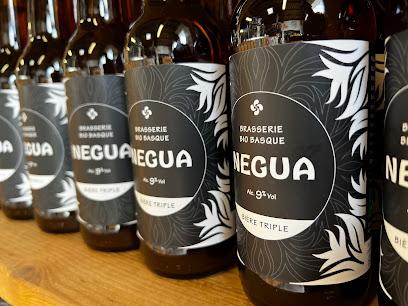
TTIKI LEKU
4.7 km
A Basque Country family amusement park with mini-golf, zip lines, water games and the unique 'Parcabout' experience.
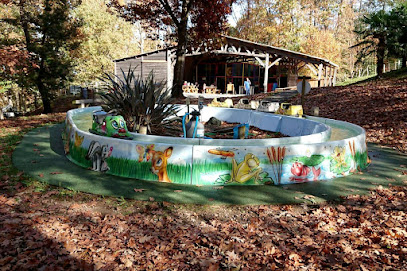
Maison du Patrimoine
5.5 km
Experience the essence of Basque culture and history at the Maison du Patrimoine in Ainhoa, a charming heritage museum that brings the past to life.
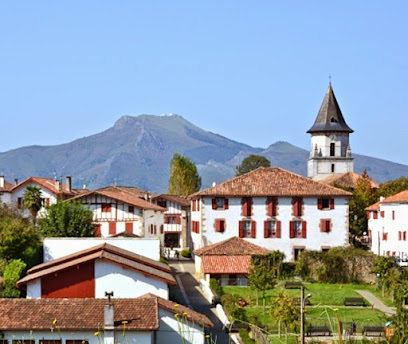
Untxien Basoa -la foret aux lapins
7.3 km
Discover a whimsical world where rabbits roam free in this enchanting national forest in the heart of the Basque Country.
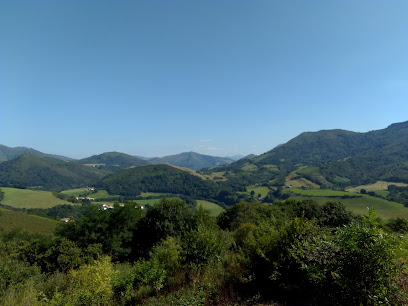
L'Ecomusée de la Pelote et du Xistera Pilotari
8.3 km
Explore the rich cultural heritage of Basque pelota at L'Ecomusée de la Pelote et du Xistera Pilotari in Saint-Pée-sur-Nivelle.
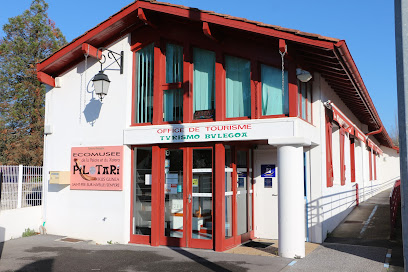
Caves of Urdazubi / Urdax
8.8 km
Discover the enchanting Caves of Urdazubi / Urdax, a natural marvel in Navarre, Spain, featuring stunning limestone formations and intriguing prehistoric history.
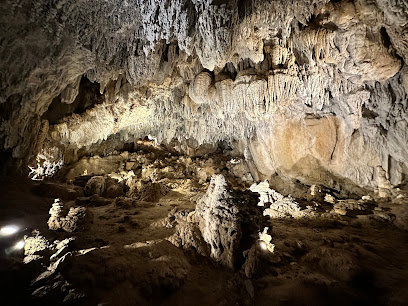
Ortillopitz, la maison basque de Sare
11.4 km
Discover Basque heritage at Ortillopitz, a beautifully preserved 17th-century farmhouse offering a glimpse into traditional rural life in Sare.
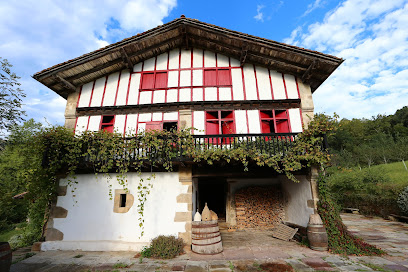
Le Musée du Gâteau Basque
12.2 km
Explore the delectable world of Basque cake at Le Musée du Gâteau Basque, where history and flavor come together in the heart of Sare.
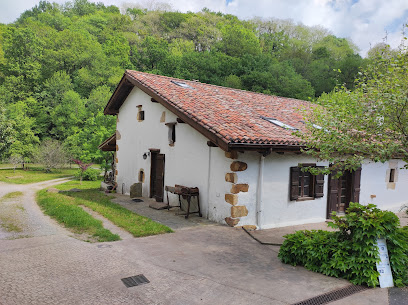
Chapelle du Sacré-Coeur
12.5 km
Explore the tranquil Chapelle du Sacré-Cœur in Hasparren, a stunning architectural marvel surrounded by serene landscapes.

La Marche des Sorcières - Marche-Guidée
12.6 km
Discover the enchanting La Marche des Sorcières in Sare, a mystical hiking experience steeped in folklore and stunning landscapes.
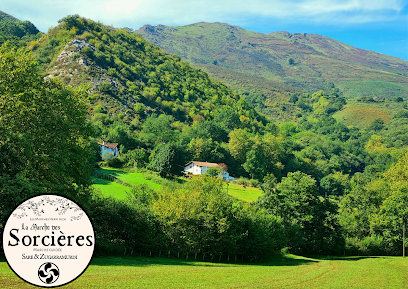
Grottes de Sare
12.7 km
Discover the enchanting Grottes de Sare, a natural wonder in the Basque region, rich in history and breathtaking limestone formations.
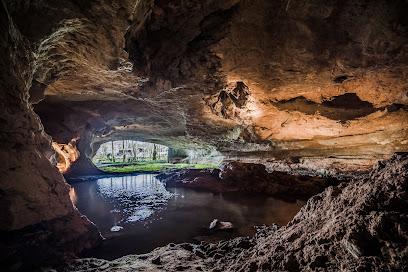
Essential places to dine
Choko Ona Espelette
0.4 km
Experience the best of Basque cuisine at Choko Ona in Espelette - where tradition meets innovation in fine dining.

Maîtres Restaurateurs en Pays Basque
6.0 km
Discover authentic Basque cuisine at Maîtres Restaurateurs en Pays Basque - a culinary haven showcasing local flavors and sustainable practices.
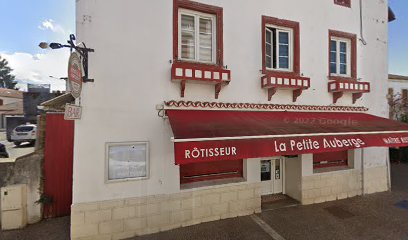
Lezetako Borda
8.8 km
Discover authentic Basque cuisine at Lezetako Borda, nestled in the breathtaking mountains of Navarre - a true culinary delight!
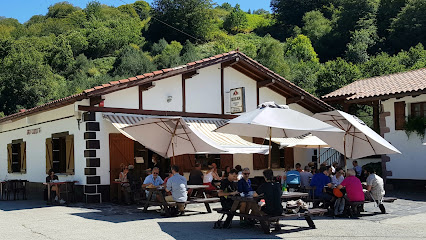
Auberge Ostape
9.0 km
Experience luxury at Auberge Ostape: A top-tier hotel with exquisite French cuisine set in the stunning Basque countryside.

Moulin d'Alotz
11.5 km
Discover culinary excellence at Moulin d'Alotz, where fine dining meets stunning landscapes in Arcangues.
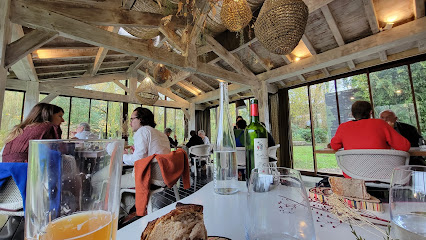
GAZTELUR
13.2 km
Experience exquisite Basque cuisine at GAZTELUR in Arcangues - where tradition meets culinary artistry in an elegant setting.

Les Frères Ibarboure - Table et Hôtel
14.8 km
Discover Les Frères Ibarboure: A luxurious hotel and haute French restaurant offering exceptional dining experiences in beautiful Bidart.
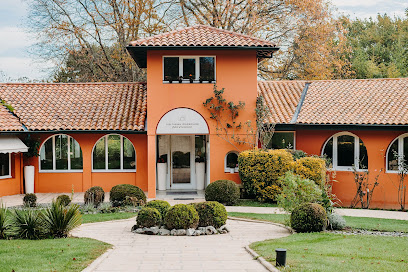
Au Bouchon Basque Le Resto
16.3 km
Savor authentic French and Basque cuisine at Au Bouchon Basque Le Resto in Bayonne - a must-visit culinary destination for tourists.

Les Rosiers
16.5 km
Discover culinary excellence at Les Rosiers in Biarritz – where local flavors meet fine dining elegance.
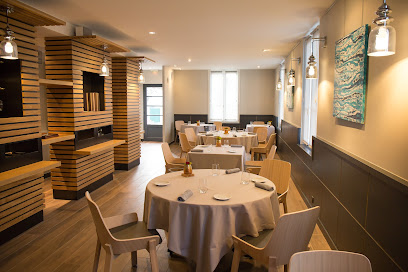
Maison Martin
16.7 km
Discover authentic French cuisine at Maison Martin in Bayonne—where every dish tells a story and every visit feels like home.

Chez Txotx
16.7 km
Discover authentic Basque cuisine and exquisite tapas at Chez Txotx in Bayonne - a must-visit for food enthusiasts seeking rich flavors.
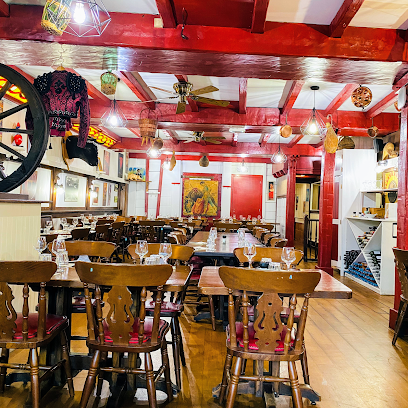
Restaurant GOXOKI
16.8 km
Experience the exquisite fusion of traditional French cuisine and modern culinary artistry at Restaurant GOXOKI in Bayonne.
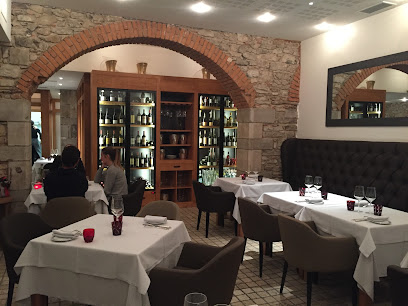
Auberge du Cheval Blanc
16.8 km
Experience exquisite French cuisine at Auberge du Cheval Blanc in Bayonne - where tradition meets fine dining excellence.
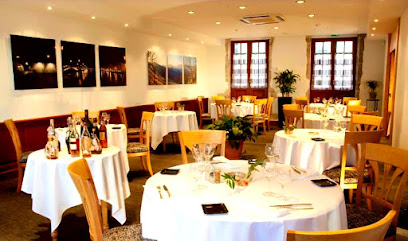
La Table Sébastien Gravé
16.9 km
Discover La Table Sébastien Gravé in Bayonne: An exceptional dining experience celebrating French culinary traditions with local flair.
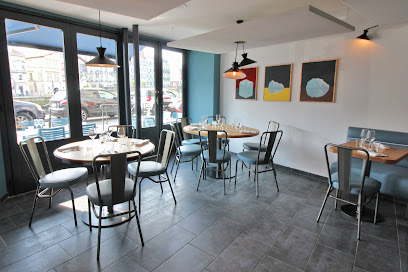
Restaurant Le Chistera
17.0 km
Experience exquisite French cuisine at Restaurant Le Chistera in Bayonne – where tradition meets contemporary flair.
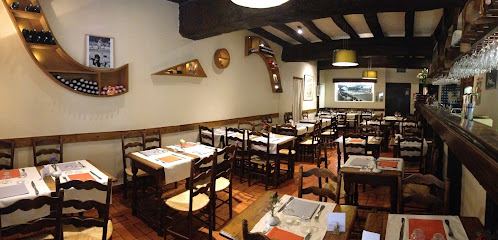
Markets, malls and hidden boutiques
Bidaia souvenirs linge Basque
12.6 km
Explore Bidaia souvenirs linge Basque for authentic gifts that embody the vibrant culture and craftsmanship of the Basque region.

Autour Du Store
14.6 km
Discover exquisite window treatments and stylish garden furniture at Autour Du Store, a must-visit destination in the heart of Bayonne.

Les Bernadettes Concept Store
16.5 km
Explore Les Bernadettes Concept Store in Anglet for chic clothing and fashionable accessories, celebrating contemporary French style in a vibrant atmosphere.

Boutique Euskadi
16.6 km
Explore Boutique Euskadi, an enchanting gift shop in Bayonne showcasing authentic Basque crafts and unique souvenirs to cherish your travels.

Boutique 64 BAYONNE
16.7 km
Discover the unique styles of Boutique 64 in Bayonne, where local culture and contemporary fashion blend seamlessly.
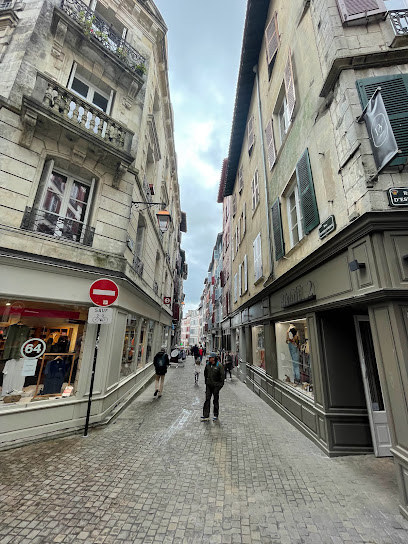
Espelette
16.8 km
Experience the vibrant culture of Espelette, home of the renowned Basque chili pepper, with its charming streets and rich culinary traditions.
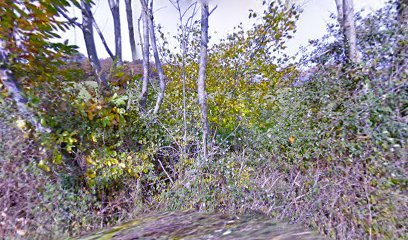
Quatre Plus Trois
16.8 km
Explore Quatre Plus Trois in Bayonne for a unique selection of stylish menswear that combines quality and contemporary design.
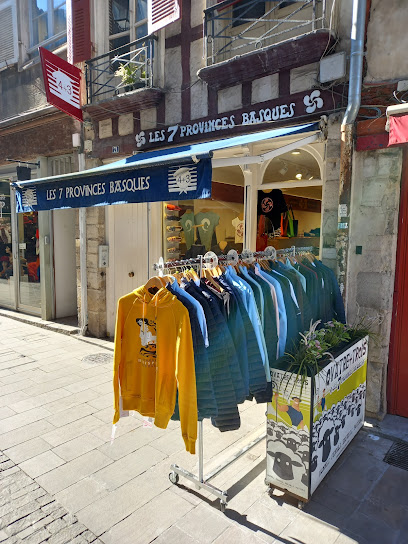
La Topaze
17.2 km
Discover La Topaze, Bayonne's vibrant rock shop offering exquisite jewelry and unique musical instruments, a true treasure for every visitor.

Bayonne Shopping
17.3 km
Discover the charm of Bayonne Shopping, where boutique treasures meet local culture in a delightful French experience.
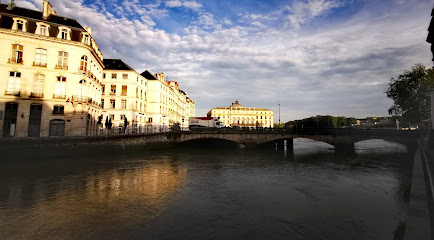
Boutique 64 ST-JEAN-DE-LUZ
17.8 km
Boutique 64 in Saint-Jean-de-Luz: Where Timeless Style Meets Coastal Charm in Men's Fashion.
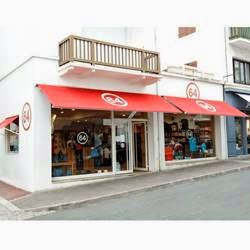
LE SHØP
18.0 km
Discover unique fashion accessories and home goods at LE SHØP in Biarritz, where chic style meets coastal charm.

L'Héritage, l'espace du fabriqué en France
18.0 km
Explore L'Héritage in Biarritz for exquisite handmade French crafts and unique artisan goods that celebrate local culture.

TTILIKA Créateur de vêtements au Pays basque
18.0 km
Explore unique Basque-inspired fashion at TTILIKA, a must-visit clothing store in Saint-Jean-de-Luz, blending local culture with contemporary style.
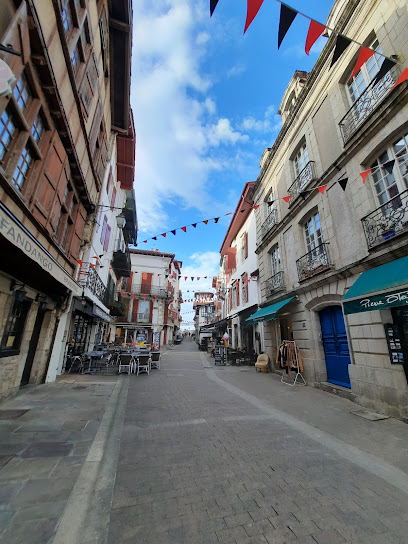
Le Bazar Basque
18.0 km
Explore the essence of the Basque culture at Le Bazar Basque, where unique gifts and gourmet delights await every visitor.
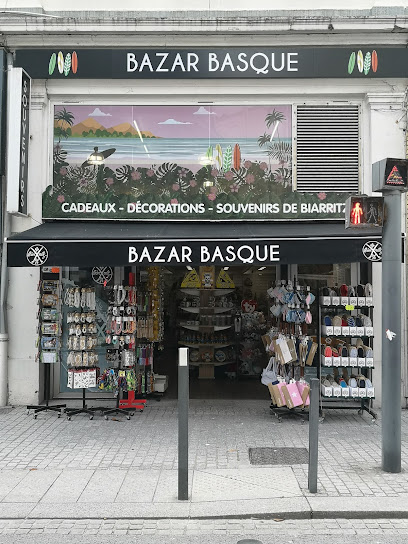
L' ANNEXE CONCEPT STORE SAINT JEAN DE LUZ
18.1 km
Explore L'ANNEXE Concept Store in Saint-Jean-de-Luz, where local craftsmanship meets unique gifting experiences.
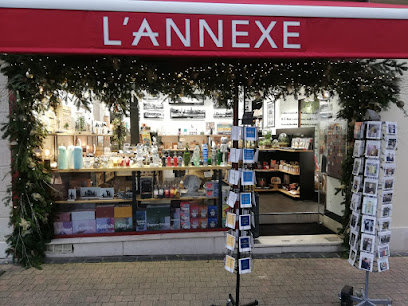
Essential bars & hidden hideouts
Lau Haizeak Bar
4.6 km
Experience the vibrant taste of Basque cuisine at Lau Haizeak Bar, where delightful tapas and a welcoming atmosphere await you.
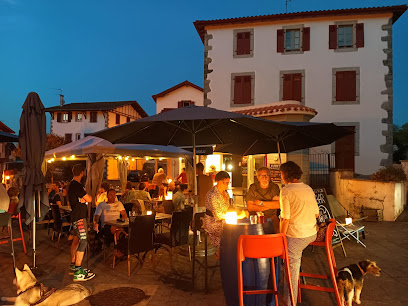
Bar - Trinquet Gantxiki
8.2 km
Discover the authentic Basque experience at Trinquet Gantxiki, a cozy bar in Saint-Pée-sur-Nivelle known for its friendly vibe and local drinks.

Bar-Epicerie Bidegaray S
10.4 km
Experience the essence of Basque culture at Bar-Epicerie Bidegaray S, where local flavors and warm hospitality come together.
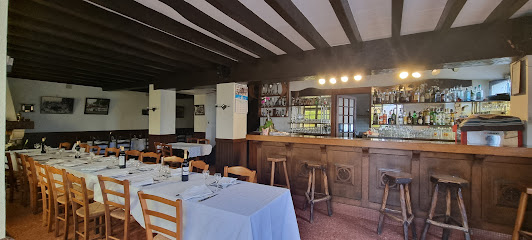
Ajoupa rhumerie
15.3 km
Discover the vibrant flavors of the Caribbean at Ajoupa Rhumerie, a unique cocktail bar and Creole restaurant in Biarritz.
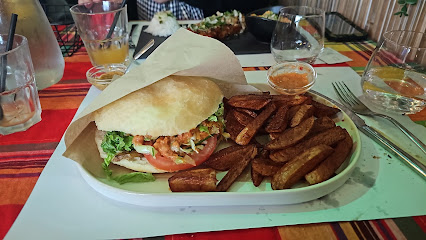
Le Bar Basque Guéthary
16.0 km
Discover the vibrant flavors of the Basque region at Le Bar Basque Guéthary, where traditional tapas meet a modern dining experience.
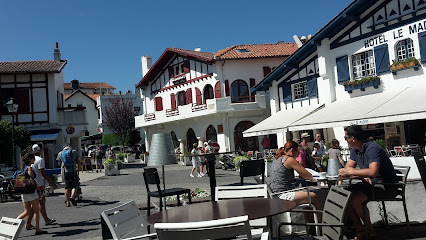
Le bar basque
16.6 km
Discover the vibrant flavors and culture of Basque country at Le Bar Basque, a must-visit bar and restaurant in Bayonne.
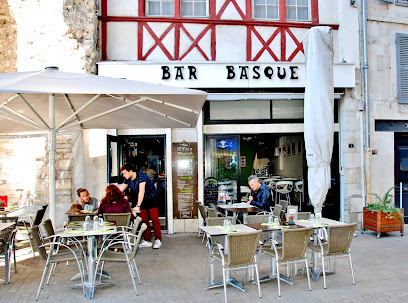
Le Before Basque - Bar de nuit & Discothèque
16.9 km
Discover the vibrant nightlife at Le Before Basque in Bayonne, where music, dancing, and Basque culture come alive for an unforgettable night.

L'Homme O Bar - Bar Gay et Fetish Biarritz
17.9 km
Experience the vibrant nightlife at L'Homme O Bar, Biarritz's premier gay bar and night club, where fun and inclusivity come together.

Bar Hôtel Saint-Julien
17.9 km
Discover the elegance of cocktails at Bar Hôtel Saint-Julien, a must-visit bar in Biarritz, where every drink tells a story of flavor and creativity.
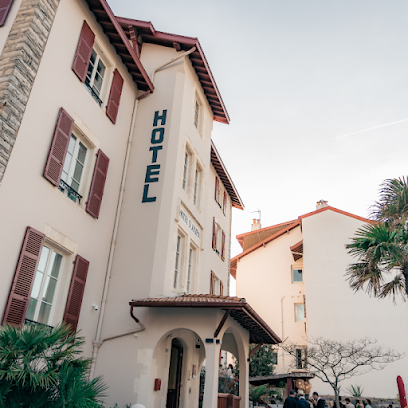
Chez les gros
18.1 km
Discover the vibrant flavors of Biarritz at Chez les Gros, a top-rated beer hall and tapas bar offering local delicacies and crafted cocktails.
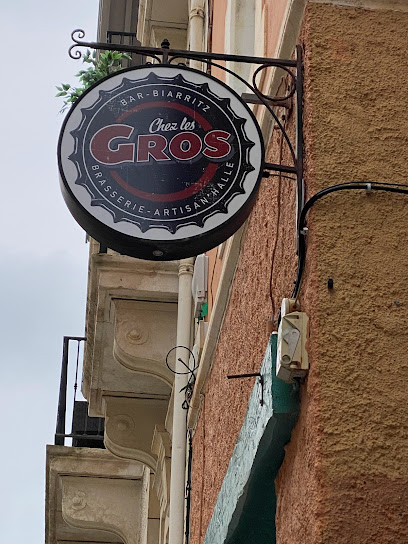
Le Newquay
18.1 km
Discover the charm of Biarritz at Le Newquay, a lively Irish pub offering refreshing drinks, delicious food, and a vibrant atmosphere.
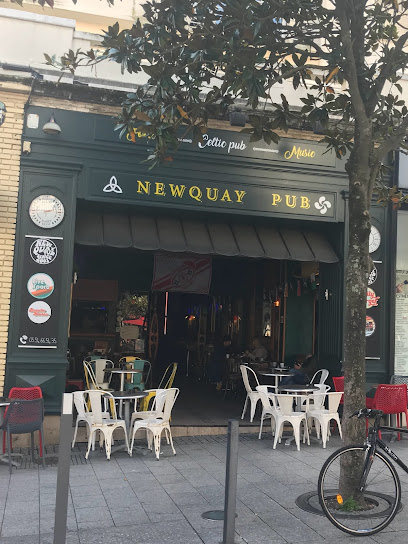
Charlie's Bar
18.1 km
Experience the vibrant nightlife of Biarritz at Charlie's Bar, a cocktail haven serving exquisite drinks and delectable tapas in a lively atmosphere.
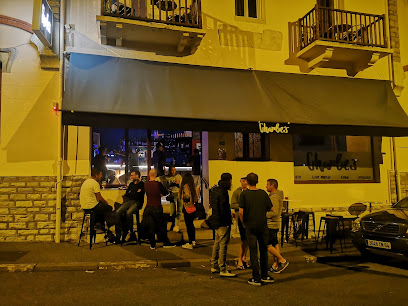
Le Bar Jean
18.1 km
Experience the vibrant culinary scene of Biarritz at Le Bar Jean, a lively tapas bar offering delicious small plates and a warm atmosphere.
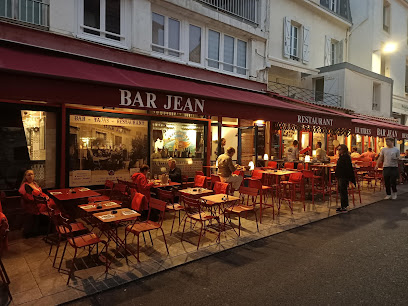
Pub du Corsaire
18.2 km
Discover the charm of Saint-Jean-de-Luz at Pub du Corsaire, where authentic tapas and a lively atmosphere await every visitor.
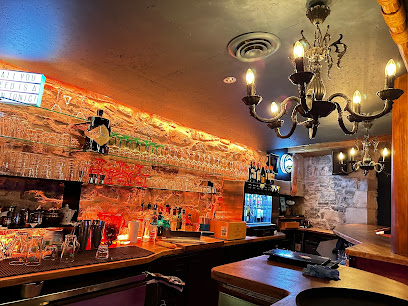
Bar de La Plage
18.2 km
Experience the vibrant nightlife at Bar de La Plage, Biarritz's premier cocktail bar with stunning ocean views and a lively atmosphere.
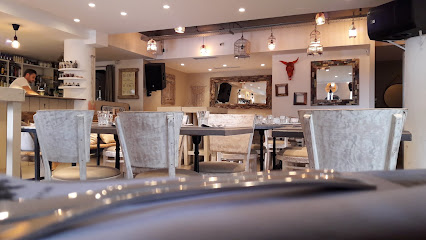
Nightclubs & after hour spots
Atabal Biarritz
15.2 km
Experience the vibrant music scene and artistic flair at Atabal Biarritz, the city's premier concert hall and cultural hub.

La Rhapsodie
15.7 km
Experience the vibrant nightlife of Biarritz at La Rhapsodie, where live music, exquisite cocktails, and an electric atmosphere await.
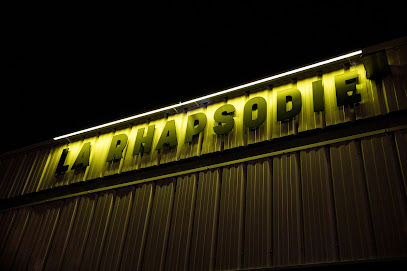
Bubus
15.8 km
Experience the electrifying nightlife at Bubus, the premier night club in Saint-Jean-de-Luz, where unforgettable memories are created under the stars.

Discothèque La Licorne
15.9 km
Dance the night away at Discothèque La Licorne, the vibrant disco club in Bidart, where the Basque nightlife comes alive with energy and excitement.

Arrena Club - Bayonne
16.2 km
Immerse yourself in Bayonne's nightlife at Arrena Club, where the beats are pulsating and the atmosphere is electric.

Laniakea Anglet
16.7 km
Experience the vibrant ambiance of Laniakea Anglet, a chic lounge in the heart of the Bab2 shopping center, perfect for relaxation and socializing.

Play Boy Club
18.2 km
Discover the heart of Biarritz nightlife at Play Boy Club, where music, dance, and vibrant energy create unforgettable evenings.

DUPLEX Nightclub
18.2 km
DUPLEX Nightclub in Biarritz: A premier disco club offering an unforgettable nightlife experience with vibrant music, stylish cocktails, and an electric atmosphere.

Cotton Club SALLE RDC Duplex Btz
18.2 km
Discover the nightlife of Biarritz at Cotton Club, where music, dancing, and vibrant energy come together for an unforgettable experience.

Le caveau
18.2 km
Experience the vibrant nightlife of Biarritz at Le Caveau, where music, energy, and fun collide in a lively atmosphere.

Carré Coast - Exclusive Nightclub
18.3 km
Discover the electric nightlife at Carré Coast, Biarritz's exclusive nightclub where elegance meets excitement and cocktails flow all night long.

Luxury Bar
27.7 km
Discover the Luxury Bar in Irun for an unforgettable nightlife experience filled with exquisite cocktails and lively entertainment.

gu san sebastian
42.2 km
Discover the perfect blend of music and dance at Gu San Sebastian, a lively night club in the heart of Donostia's vibrant nightlife.

The Caledonian
42.6 km
Discover the vibrant nightlife at The Caledonian, a top disco club in Donostia-San Sebastian, where unforgettable dance experiences await you.

Andén Donostia
42.7 km
Experience the vibrant nightlife at Andén Donostia, where music, dancing, and a lively atmosphere come together in the heart of San Sebastián.




